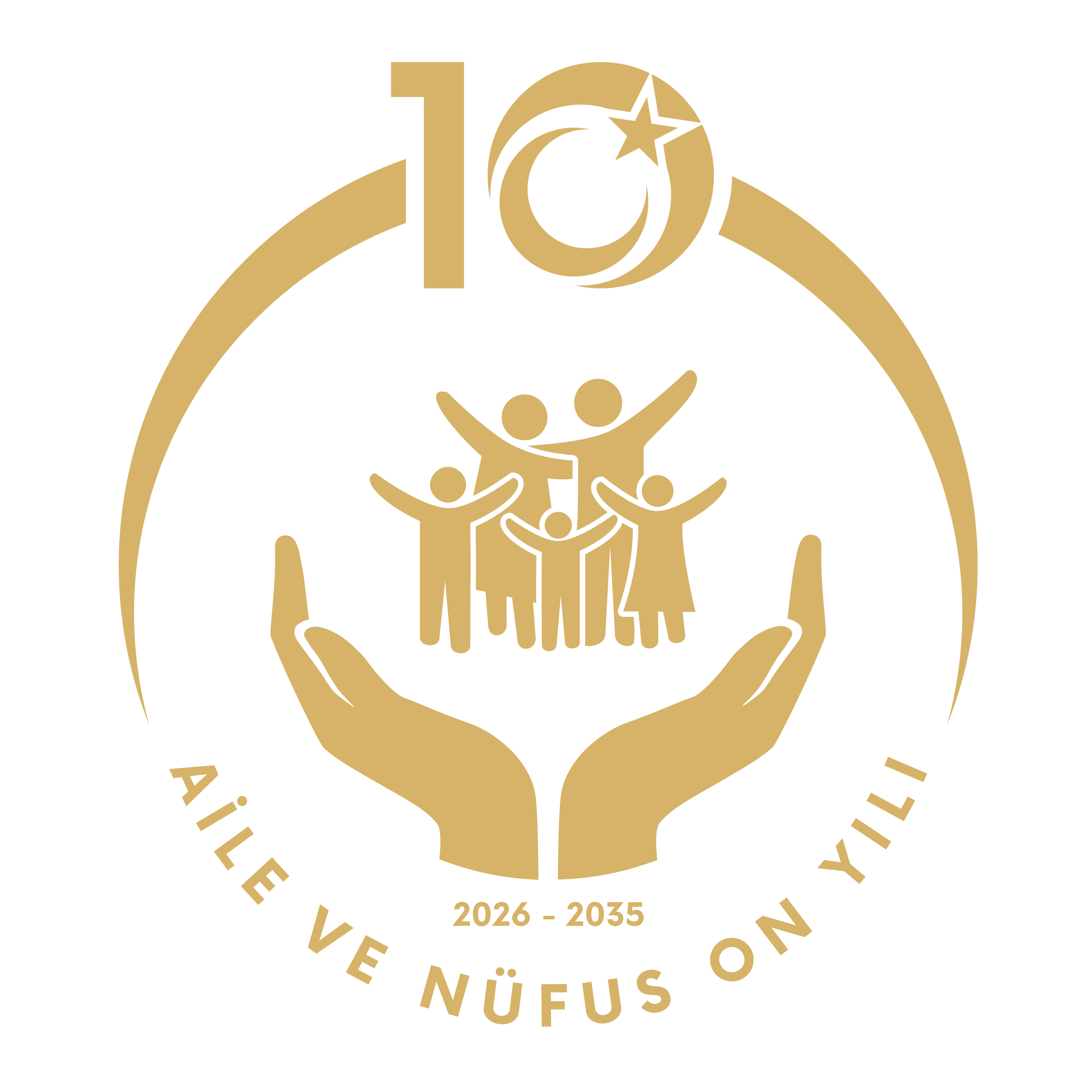The Workshop on The Development of a Family-Based National Early Intervention Program was held in Ankara in cooperation with the General Directorate of Disability and Elderly Services of the Ministry of Family, Labor and Social Services and UNICEF.
The Ministry of Family, Labour and Social Services has moved to prepare Turkey's first "Family-Based National Early Intervention Program", which aims to track and support infants and children with disabilities between the ages of 0 and 3 who are at risk of development from birth to adulthood.
Turkey's first "Family Based Early Intervention Program Development Workshop" was held in Ankara, which aims to monitor and support babies and children with disabilities between the ages of 0-3, who are at risk of development in cooperation with UNICEF and the General Directorate of Disability Elderly Services of the Ministry of Family, Labor and Social Services. Completed. The three-day workshop was held on 18 - 20 February.
The Social programs of the Ministry of Family, Labor and Social Services, the Ministry of Education's education support programs and the Ministry of Health's screening programs will be combined with a holistic approach, and an "early intervention system" is envisaged to monitor the development of infants and children and establish an "early intervention system".
In the short, medium and long term, it is aimed to create monitoring mechanisms to ensure that services for children 0-3 years old reach each child and their family, to ensure the welfare of children with disabilities and to increase inter- institutional cooperation in order to plan the services that should be provided at a later age. The workshop, organized in cooperation with the General Directorate of Disability and Elderly Services and UNICEF, will focus primarily on the current practices and legal infrastructure in this area, and areas of problems and solutions will be identified.
As a result of the workshop, monitoring and monitoring mechanisms to be determined mechanisms and services necessary to support children and their families whose development is at risk and have mild to medium-heavy disability will be determined.
As a result of the workshop, a roadmap will be put forward for the development of a holistic and systematic national early intervention program.
Mehmet Nezir GÜL, General Manager of Special Education and Guidance Services of the Ministry of National Education; He said the Ministry of National Education contributed to the "National Early Intervention Program Development Workshop" with education support programs.
Speaking at the Workshop on Developing a National Early Intervention Program based on family, James Gray, head of the UNICEF Department of Child Protection, said in a statement. "It is very important to include vulnerable children and to raise children's rights to a higher point in the most disadvantaged children's groups, in the name of the idea of not leaving anyone behind, which is one of the main elements of the Sustainable Development Goals.
In this context, moving the rights of children with disabilities to a higher point is an important part of UNICEF Turkey's current National Programme Document, while the next country programme, which starts next year, is also among the priorities. Early intervention for the family reinforces appropriate interaction and parenting skills, reducing the pressure on the family. It also helps to reduce social exclusion by strengthening the official and unofficial networks that support the family."
Re-evaluation and realization of these programs with a Holistic and Systematic Understanding is needed
Disabled and Elderly Services General Director Exp. Md. Orhan KOÇ, in the opening speech of the workshop; "Welcome to the "Workshop on The Development of a Family-Based National Early Intervention Programme" conducted by our Ministry in cooperation with UNICEF. As it is known, there are various early intervention programs being implemented in our country under the authority and responsibility of the Ministry of Health and Ministry of National Education.
However, these programs need to be re-evaluated and carried out with a holistic and systematic understanding. That's why today we have carried out the beginning of a national study where we will record different stages and developments in the issue of national early intervention.
It is defined as early intervention to prevent these disadvantages by identifying children of school age or younger, who are found to be at risk of development, who are found to be a developmental retardation, have special needs, school- age or younger children. Early education is a whole of services provided to prevent or minimize the limitations of disadvantaged infants and children in their physical, cognitive, emotional development in terms of physiological or environmental risk factors.
Family participation in early intervention is one of the most fundamental elements of the program. Each of the intervention programs is different in terms of the characteristics of children and their families to be included in the country, region, intervention program.
Even if they are included in the same early intervention program, there are individual differences in the needs of children and families. One of the factors in the success of the intervention program is that the program is planned to respond to accurate and individual needs.
Even if they are included in the same early intervention program, there are individual differences in the needs of children and families. One of the factors in the success of the intervention program is that the program is planned to respond to accurate and individual needs.
Examining programs that enable family participation and reach a large number of children and taking into account the factors that lead to success and the recommendations of program practitioners will guide a newly planned intervention program," he said.
Exp. Dr. Orhan KOÇ; The program, which will be prepared with a holistic approach in cooperation with the relevant ministries, universities and non-governmental organizations, envisages the establishment of an early intervention system in which measures will be taken not only for disabled children, but also in a wide range of measures leading to families, caregivers, households, neighborhoods and schools, as well as the establishment of an early intervention system in which the development of infants and children is identified and possible risks are identified. "The Three-Day National Early Intervention Program Development Workshop" was organized for the ministry to determine the roadmap for all of this.












